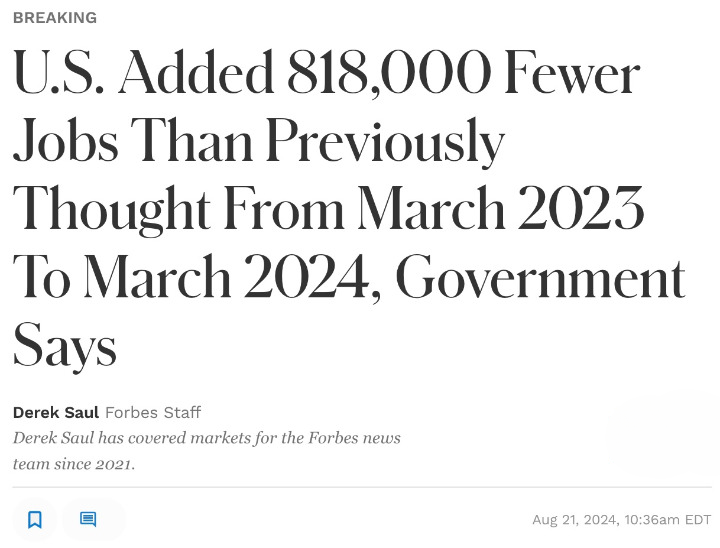Today’s investing landscape may be as difficult to navigate as it’s ever been.
This is in large part due to changes that have taken place over the past decades.
Two important distinctions investors should be aware of today.
First…
The Stock Market Is Not the Economy…
Not so long ago, when the US economy was a value-based engine, the stock market could be considered a decent measure of economic activity.
Manufacturing companies who produced and sold more products earned more money. And investors in those companies were rewarded with higher share prices and often dividend payouts.
Everyone’s a winner.
Today we no longer live in a traditional value-based economy. Sure, we have industries that produce stuff that’s sold here and around the world. But more and more that continues to change.
Today, and for the past roughly 50 years, the stock market has turned from a measure of an industrial economy into a tool of financial elites.
A means to make money from money. Period.
If you want the big picture, think of the golden age of the corporate raider — the time associated with the “Go-Go 80s” and personified by Gordon Gekko in the movie Wall Street.
The strategy back then was to acquire distressed manufacturing companies and drain whatever cash flow they could. Corporate raiders cut capital and operating expenditures and sold off assets. In the immortal words of Gekko himself, they’d wreck a company “because it’s wreckable!”
It wasn’t about investing to grow a company. It was about spending money for a fast return.
But the financialization wasn’t limited to the corporate vultures.
Manufacturing companies themselves even got in on the “make money from money” craze.
General Motors Acceptance Corporation and Ford Motor Credit were both established decades ago to finance car purchases. But during that same time they began to expand their interests into all sorts of other financial services including mortgages, insurance, banking and commercial finance.
Their financial efforts eventually began to eclipse their main businesses…
In 2004, GM reported that 66 percent of its $1.3 billion quarterly profits came from GMAC; while a day earlier, Ford reported a loss in its automotive operation but $1.17 billion in net income, mostly from its financing operation.
Today, stock buybacks are all the rage.
After a shaky start earlier this year, Apple announced it would buy back $110 billion of its shares. Without changing a thing in its operations, its share price suddenly exploded making them once again the most valuable company in the world.
Much of the stock market has become addicted to this financialization. And that’s why cheap capital (low interest rates) is so important.
This is an important fact to understand. Stock indexes do NOT represent the economy.
…And Neither Are Economic Reports
The second thing to understand is that “economic reports” don’t accurately represent the economy either.
Case in point.
GDP for the second quarter was just revised upwards to 3% — over doubling the first quarter’s report of 1.4% growth.
If you believe these numbers, business should be booming.
Yet in the first half of this year, corporate bankruptcies are soaring.
According to the June S&P Global Market Intelligence report: “The 346 total filings so far in 2024 is also higher than any comparable figure in the prior 13 years.”
Personal consumption expenditures (the fancy name for consumer spending) rose 0.7% in the second quarter as well. But sales numbers for many consumer-facing companies like General Mills…
MINNEAPOLIS – General Mills (NYSE: NYSE:GIS) has confirmed its financial targets for fiscal year 2025, expecting organic net sales to be flat to up 1 percent, and an adjusted operating profit ranging from a 2 percent decline to flat in constant currency.
…Hershey…
The stock of iconic US chocolate maker Hershey tumbled after the company slashed its sales and earnings outlook for the year as shoppers continue to reduce purchases of higher priced chocolates and candies.
Q2 sales plunged 17% to $2.07 billion, sharply missing the $2.31 billion estimate. Adjusted EPS of $1.27 per share also missed expectations.
…even dollar stores…
Shares of Dollar Tree plunged nearly 12% in premarket trading in New York after the discount retailer, which operates thousands of stores nationwide, posted fiscal second-quarter earnings that fell short of Wall Street expectations. The company also slashed its full-year outlook, pointing to mounting financial pressures on middle-income and higher-income customers. This comes less than a week after major rival Dollar General reported a “financially constrained core customer” that sent shares crashing the most on record.
…have been struggling as well.
And then there are all the jobs that have been added to the economy…

Today, given all the potential for revisions and seasonal adjustments, economic reports really don’t mean much where the future of a stock — or even an entire index — goes.
Heck, they don’t even accurately represent the economy.
These financial and economic “dislocations” can create havoc for investors.
But we make them our business here, to make sure our readers are the best-informed investors they can be.


